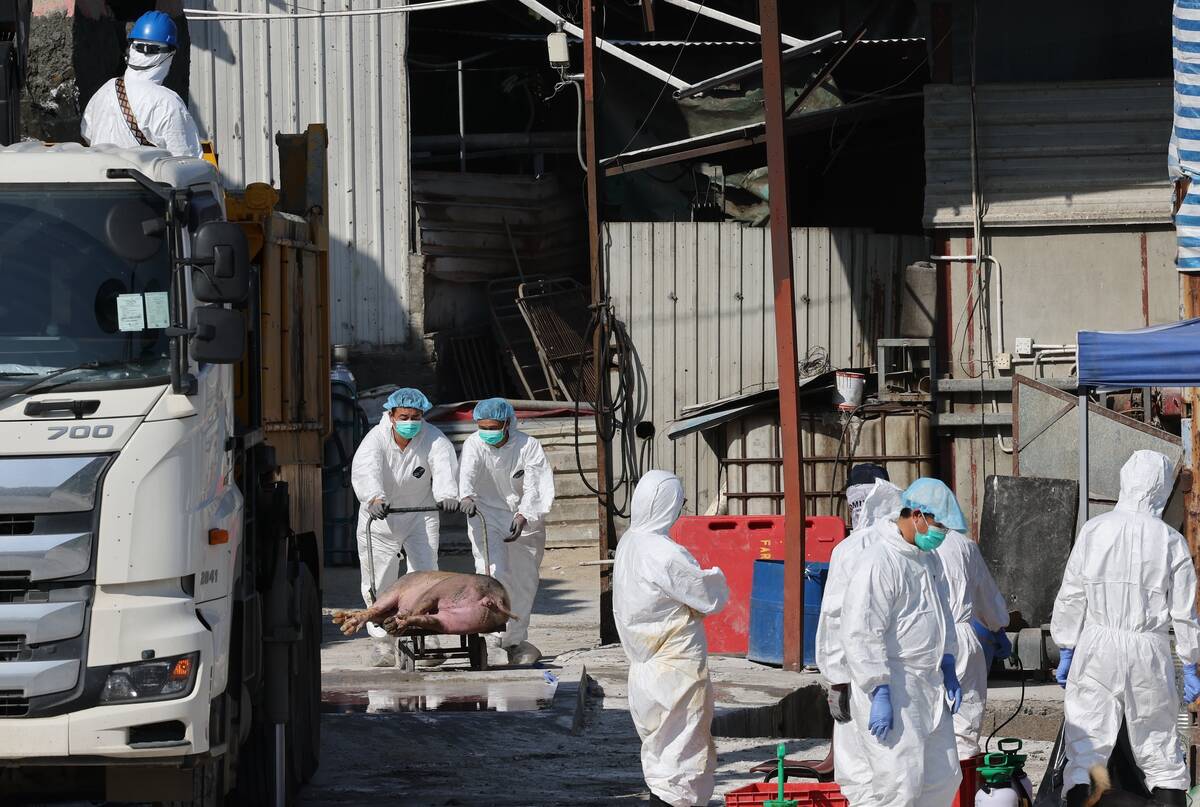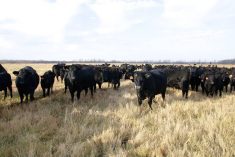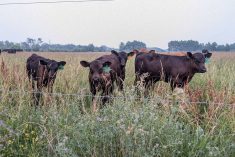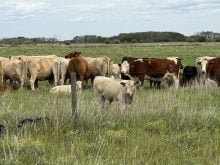The number of horses infected with West Nile virus is down since the peak of 445 cases in 2003, but that’s no reason to become complacent, says Gerald Ollis, Alberta’s chief veterinarian.
Last year saw 111 cases: 46 in Alberta; 57 in Saskatchewan and eight in Manitoba.
Veterinarians say widespread use of vaccines is probably why infection rates are dropping.
According to the Canadian Food Inspection Agency website, horses can be vaccinated with Merial’s Recombitek and Wyeth’s West Nile-Innovator. Two shots are needed to establish immunity, followed by annual booster shots.
Read Also

Mixed results on new African swine fever vaccine
The new African swine fever vaccine still has issues, but also gave researchers insight into how virus strain impacts protection against the deadly pig disease.
Some horse owners might be tempted to save money by forgoing boosters this year, but Ollis said that’s a false economy unless they aren’t particularly fond of their horses.
Studies show more than 30 percent of infected horses die or develop chronic problems from a West Nile infection, so prevention is the best cure.
“If I had a valuable horse, I would probably do it,” Ollis said.
“Some veterinarians may have different recommendations depending on the mosquito load and the type of mosquitoes in their area. There are so many variations that it’s hard to make a blanket recommendation.”
The only way to know for certain that a horse has developed immunity to the virus is to take a blood test, he said, and that would cost much more than giving it a booster shot.
“You can assume that yearlings or horses born this season would have minimal immunity,” he added.
Foals shouldn’t be vaccinated until they are at least eight weeks old, he said, because passive immunity received from colostrum could interfere with the vaccine’s effectiveness.
Young horses should probably be vaccinated two or three times in their first year, but Ollis urged owners to check with their veterinarian to develop a prevention plan.














